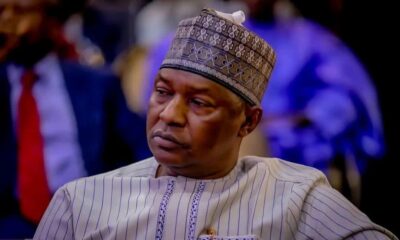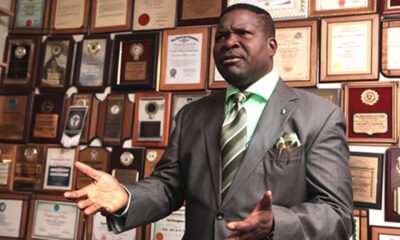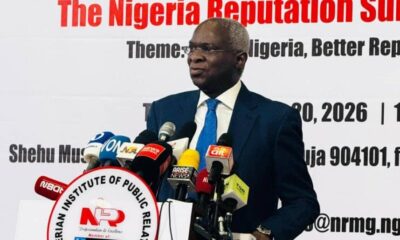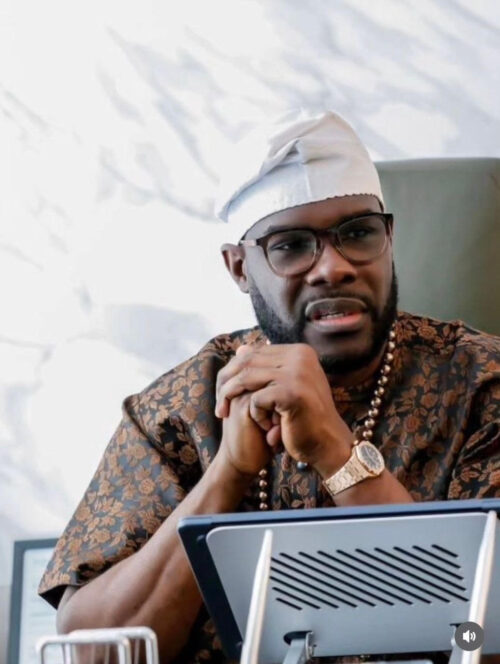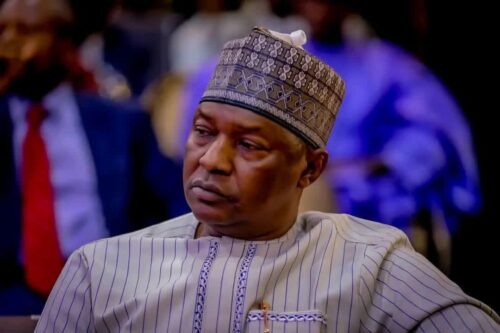Foreigners have been frantically trying to evacuate Ukraine since Russia’s invasion, especially Nigerians, who have experienced enormous problems and alleged racial discrimination in their attempts to return home.
Nigerians living in Ukraine have attempted to cross land borders into neighboring countries over the last few days, resulting in over 190 deaths and over 1,000 injuries.
Ukrainian soldiers and border guards have been accused of discriminating against Africans and other non-Whites.
A Nigerian student, @miss_debeham, said her friend developed hypothermia and fainted after waiting for six hours at the Medyka border to cross to Poland.
She said appeals to the Ukrainian border guards to let them through, on account of her friend’s ill health, fell on deaf ears — until they were eventually able to force their way through. She, however, claimed that a Ukrainian lady with a less severe health condition was promptly prioritized.
“The Racism today! My friend fainted from too much cold today and we had to wake her up with water while I kept her warm. I went to tell one of the officials at the gate and they said I should call an ambulance (knowing it meant us going back into Ukraine) or go somewhere warm or to get her coffee. We couldn’t risk that as we wanted to enter quick and leave Ukraine. My other friends and I kept her warm and told her to sit while we stayed by the gate. She was obviously weak throughout everything and everyone saw it,” @miss_debeham tweeted.
“I went to tell another official and she said the same thing. I didn’t say anything but tried to keep her warm. We were close to the gate and this Ukrainian man gave her his box to sit on while we were waiting for them to let us in.
“…a Ukrainian babe called the attention of the same official to a Ukrainian girl not feeling well. She looked fine or at least better than my friend. She was only frowning. This woman fought for her to come out of the crowd and into the border.
“People behind me were appalled, I was more pissed because someone here is showing signs of hypothermia but because of our skin, we don’t deserve immediate attention? This is minus the way she shouted aggressively and pushed us but had a normal voice with Ukrainians.
“She started letting the next set of people pass and the man had to tell my friend to push her way out. This old woman blocked the way with her hands and it was so difficult telling her someone was literally sick. She didn’t want to hear it
“I finally pushed my friend out without her luggage and I told them I was her sister as I couldn’t let her walk alone because she was obviously SICK! it was a struggle for me to get out. We were in the cold for 6 hours straight and it could have been worse.”
@Damilare_arah, another Twitter user, shared a video of a large gathering of black people, including a woman and her two-month-old baby, left unattended in the cold while waiting to cross a border.
“They are not allowing any black people in, only Ukrainians. We’re all here,” a voice said in the background.
‘RACISM AT TRAIN STATIONS’
@nzekiev, a Nigerian Twitter user sharing on-the-scene updates on the situation, said many Africans are stuck in Lviv.
“In the train stations here in Kyiv, children first, women second, white men third, then the remaining is occupied by Africans. This means that we have waited for many hours for trains here & couldn’t enter because of this. The majority of Africans are still waiting to get to Lviv,” @nzekiev wrote.
“We had to start shouting and pushing African women to the train, so they had no other option than to allow them since they said women and children first. It wasn’t the case earlier.”
According to @nzekiev, for every two foreigners allowed to cross over to Poland, 100 Ukrainians were let through the border first.
“Been at the Poland-Ukraine border for the past 5 hours & they’re segregating. Ukrainians on the other side, Africans & other foreigners on the other side. Like 100 Ukrainians first, then two Africans & other foreigners. Well, if their citizens leave, who will fight for them? We?” he wrote.
“They actually wanted to crush us with their bus, and even pointed guns at us while we were shouting “we are students, allow us to cross” because we didn’t allow them to cross their people first before us. We forced our way in, and they gave up. I have these on video record.
“Even after forcing our way in, Ukrainian Army and Police continued to chase after us. They could no longer contain the crowd. We are in Poland now.”
NIGERIANS ‘STILL STUCK’ IN KHARKIV, SUMY
Otumudia Dennis, a Nigerian student at Kharkiv Institute of Medicine and Biomedical Sciences, told TheCable that he and several other students are stuck in Kharkiv, adding that movement was stalled when Russian troops entered the city.
“No mobility yet. Some have left which they were kinda closer to the train. I’m not close and getting a taxi is difficult. Russians have entered my city already,” Dennis said.
Another Nigerian, @princeo2013, also said many people are unable to leave Sumy.
“We are locked down. The railway is not working here. There is no possible way to leave Sumi now because of the geographical location,” @princeo2013 said.
He said the best option is through the Russian border, but wondered if the Nigerian authorities could communicate with the embassy in Russia to receive them.
‘$200 FOR A RIDE TO POLAND’
Some Nigerians who spoke on a Twitter Spaces hosted by @officialduwa alleged that they had to pay as much as $200 to Ukrainians with vehicles to help them get to a border.
“Nigerians are paying Ukraine citizens to help them cross to Poland, using their vehicles. They paid as much as $200 to the Ukrainians,” a speaker said.
“Many Nigerians rushed en masse to the Polish border, where they were denied entry. As of Sunday morning, only women and children were being allowed to enter Poland, fuelling fears that Ukraine wants to conscript Nigerian men to fight. Nigerians still in Ukraine say Slovakia and Belarus are more accepting of Blacks.”
Also speaking on the Twitter Spaces, @Babsayor advised Nigerians stuck in Ukraine to consider leaving through Hungary and Budapest borders, saying the routes are less crowded compared to the Ukraine-Poland border.
‘HOURS OF TREKKING’
Owing to the unavailability of buses and trains, and the traffic condition on the roads, people reportedly had to walk for as long as six hours — yet, they were still denied passage at the borders.
“My sisters have been walking for hours just to reach the Polish border. They are cold and very tired. We are all still very restless. Anytime I close my eyes to sleep I start having weird dreams,” @Miss_Ameenah tweeted.
FG ASKS NIGERIANS TO LEAVE THROUGH ROMANIAN, HUNGARIAN BORDERS
Abike Dabiri-Erewa, chairman of Nigerians in Diaspora Commission (NiDCOM), confirmed that Africans are having issues moving to Poland, but asked Nigerians to make their way to the Romanian border as arrangements have been made to receive them.
“Indeed confirmed that Africans are having issues heading to Poland. Our Embassy in Romania has made arrangements to receive Nigerians through the Romanian border. Pls, call +40747309174, 40786091964 for the consular officer and head of a chancery respectively,” Dabiri-Erewa wrote.
The ministry of foreign affairs also said visa-free access has been approved for Nigerians coming through the “the Hungarian Zahony border and Romanian Suceava, Tulcea, Satu Mare County, and Maramures borders”.
UKRAINE DENIES RACIAL DISCRIMINATION ALLEGATIONS
Geoffrey Onyeama, minister of foreign affairs, said he spoke to Dmytro Kuleba, Ukrainian minister of foreign affairs, but the latter claimed that there was no restriction of foreigners trying to exit the country.
“It’s official: no restrictions for foreign nationals to leave the country to exist,” Onyeama quoted Kulebe as saying.
“Problem is the result of chaos on the border and checkpoints leading to them.”
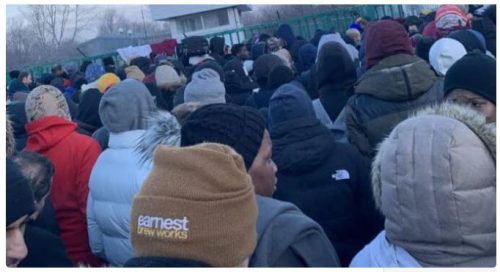

 BIG STORY23 hours ago
BIG STORY23 hours ago
 SPORT4 days ago
SPORT4 days ago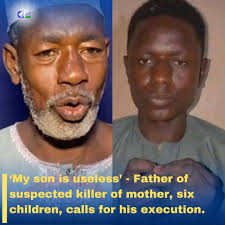
 BIG STORY22 hours ago
BIG STORY22 hours ago
 BIG STORY4 days ago
BIG STORY4 days ago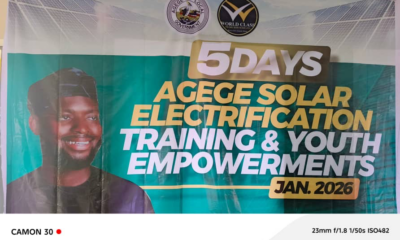
 POLITICS4 days ago
POLITICS4 days ago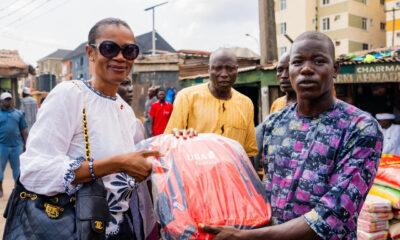
 BUSINESS4 days ago
BUSINESS4 days ago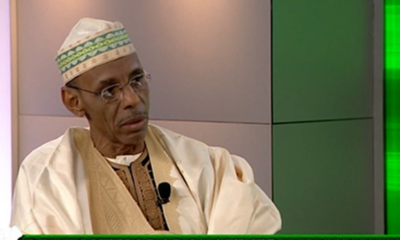
 BIG STORY2 days ago
BIG STORY2 days ago
 NEWS4 days ago
NEWS4 days ago








